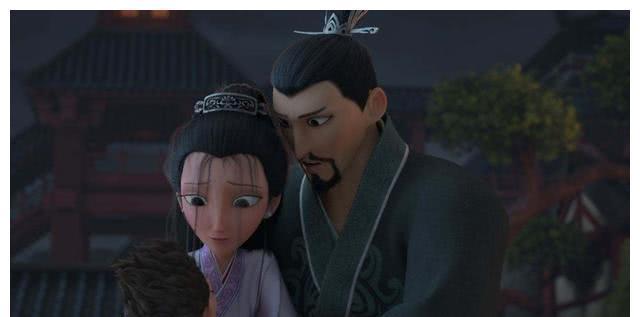As we all know, in the period of feudal society, the word "prince" has always been a unique title of the ancient royal family. However, even if he was born in the royal family, not everyone can be called a prince. At that time, only a prince who was designated by the emperor himself as the successor could be called a prince, and the rest of the people could only be called princes at most. In addition to the royal family, the designated successors of princes and princes can only be called shizi at most because they are lower in rank than princes. Well, here's the problem. Li Jing was never an emperor, much less a member of the imperial family. And when books such as "Fengshen Yanyi" mention his identity, they only say a few words, saying that he is just a general soldier of Chen Tangguan, why can his son Nezha be called the "Third Prince"? Did Li Jing have the intention of plotting rebellion?

In fact, this is really not to blame Li Jing, because the reason why Nezha is honored as the "Third Prince" has nothing to do with the royal family. In history, although the word prince has indeed been used by the royal family, before the Qin Dynasty, the prince was not necessarily the heir of the Son of Heaven. Because at that time, the heavenly son and the legal heirs of the princes could be called "princes" or "shizi", and there was no difference. However, after Qin Shi Huang unified the country, the crown prince became the only heir of the royal family. In books such as the Fengshen Yanyi, Li Jing's dynasty was during the Shang and Zhou dynasties, which was obviously not in the imperial era, so it is understandable that Nezha was called "prince".
Secondly, since Xu Zhonglin, the author of "The Evolution of the Fengshen Gods", is a Ming Dynasty, it is inevitable that his book will be created according to the author's current dynastic background. For example, Li Jing and his people are actually created by the author based on the famous Tang Dynasty general Li Jing. Another example is Chen Tangguan, which is guarded by its town, in fact, it does not explain the specific location in the book. Today's Chentangguan is roughly divided into two regions, one in Sichuan and one in Tianjin. However, according to the territory of the Shang Dynasty, Chen Tangguan did not actually belong to the territory of the Shang Dynasty.
Even this position of chief soldier was first established in the Ming Dynasty, and the Shang Dynasty did not have this position at all. However, the author gave Li Jing'an the post of commander-in-chief, in fact, he also wanted to confirm the identity of his princes. After all, in the Ming Dynasty, although the general soldier had no rank, those who held this position were usually princes. Therefore, if this identity is brought into the Shang Dynasty, it is very normal for Nezha to be called a prince.
Finally, in addition to Li Jing's status as King of Tota, he has always been regarded by the people as the reincarnation of King Vishamon in the north. It is not surprising that Nezha, as his third son, was called the crown prince.